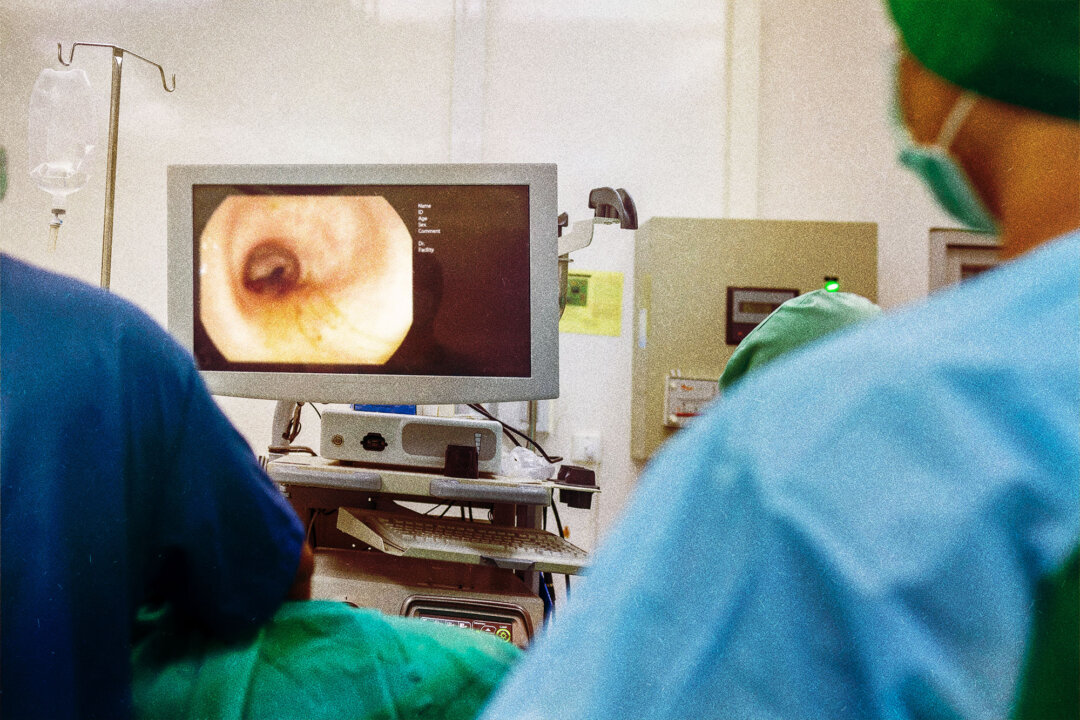It’s common after a colonoscopy to feel symptoms like gas, bloating, stomach pain, and cramping. For some people, the symptoms can go on for weeks and cause permanent changes to the gut microbiota. About 40 percent of patients may experience these lingering problems, which tend to be more common in women, patients who have a longer procedure time, and those with pre-existing diseases that already disrupt the microbiota, such as inflammatory bowel disease (IBD).
Changes in the gut microbiota—bacteria, viruses, fungi, and other microorganisms that live mainly in the large intestine—drive general gastrointestinal (GI) discomfort. Colonoscopies can cause negative microbial population shifts, called dysbiosis, though the effects are short-lived for most people. Diarrhea is associated with dysbiosis secondary to a change in the mucus thickness of the colon.

Although thinning of the mucus can offer gastroenterologists—or physicians who diagnose and treat disorders of the gastrointestinal tract—a better view of polyps and problem areas during a colonoscopy, authors of the review noted a thinner mucus results in a decrease of the beneficial bacteria Akkermansia. Bowel prep can cause a significant alteration of gut microbiota, at least initially. Reduction of overall microbial diversity associated with better health Decreased Firmicutes and Bacteroidetes normally dominant in the gut Having more Firmicutes and less Bacteroidetes, which is also associated with obesity and other health issues Increased Proteobacteria, which includes more bacteria that can become pathogenic or disease-causing when present in large numbers Some studies report no significant changes in the gut microbiota after colonoscopy.
Of note, in studies reporting dysbiosis, certain factors tended to be associated with dysbiotic trends, such as baseline gut microbiota status, predisposing factors like IBD and being overweight, and bowel preparation methods. Splitting up the doses of bowel preparation—typically half the night before and half the morning of the procedure—was associated with better microbial recovery. “Interestingly, that is what is advocated as the standard of care right now for bowel preparation because it does a much better job also in cleaning the bowel prior to colonoscopy rather than taking the whole preparation at once,” Dr.
Andres F. Carrion, gastroenterologist, and spokesperson for the American Gastroenterological Association (AGA) told The Epoch Times. Colonoscopies are common for IBD patients during a flare of symptoms to determine treatment decisions, making the procedure difficult to delay.
However, Carrion said anyone who is taking or recently finished antibiotics should consider delaying a colonoscopy—mostly because the body’s resources are fighting the infection. And cancer patients receiving chemotherapy need to have a robust immune system. “Usually we try not to have the procedure if a patient is having an infection, and that can even be sinusitis, bronchitis, any extra-GI tract infection.
We try to delay it,” Carrion said. Colonoscopies performed on patients having chemotherapy are timed for when white blood cell counts are highest, lowering the chance that the patient would get an infection, he added. Regardless of colonoscopy risks, most doctors believe a baseline colonoscopy is an important screening test for patients.
Studies show varying results. In some studies, probiotics are given before the procedures, though most studies investigate post-colonoscopy probiotic use. In general, probiotics can increase the overall diversity of the gut flora.
Various mixtures of Bifidobacterium infantis, Lactobacillus acidophilus, Enterococcus faecalis, and Bacillus cereus present in probiotic preparations promote a rapid decrease in Proteobacteria, which can be disease-protective. Probiotics offer great benefits to individuals who experience gastrointestinal symptoms before a colonoscopy, according to the review. While the authors stated that it’s unclear whether there is a benefit for the general population, a new meta-analysis of probiotics used after colonoscopy highlighted at a recent AGA conference showed a more widespread benefit.
Other factors that can cause dysbiosis—including both prescription and over-the-counter medications and various ingredients in processed foods—make it difficult to predict how someone might react to a colonoscopy, he added. Carrion describes GI aggravations to patients this way: The mucosal lining is like skin, and skin cream or lotion may not cause problems for your parents but gives you a rash. The GI tract is similarly idiosyncratic.
“Everyone is a little bit different, and then you have this difference in microbial populations, which also modulate how we respond to specific foods, sugars, and so forth,” he said. “It’s very individual—the microbiome is like a fingerprint. It may be very challenging to develop one-size-fits-all for everyone with regard to probiotics.
” It’s also important for patients to properly prepare for the procedure by avoiding food and sticking to a diet of clear liquids. Improperly following instructions can result in incomplete preparation of the colon. This incomplete preparation can result in discomfort, an ineffective procedure, or the need to reschedule the procedure.
“I think what’s more important than probiotics is to get the patient into a diet that’s prebiotic, which is fiber. I tell patients that’s the fertilizer for microbes to help them rebuild their own microbiome or flora with the help of healthy foods,” he said. “My take is that’s probably going to work better than putting everyone on a probiotic after a colonoscopy.
” In other words, probiotics and prebiotics such as fiber should be long-term solutions, not quick fixes taken only before colonoscopy. Prebiotics are food for gut bacteria found in fiber-rich carbohydrates. Probiotics are bacteria naturally occurring in some food that can help replenish the microbiota.
Fruits and vegetables like garlic, onions, asparagus, and bananas Grains and legumes like wheat, flaxseeds, peas, and beans Dark chocolate It’s also important to avoid a high-sugar, high-fat diet, Carrion added. He’s found three barriers that keep his patients from opting to eat more healthily—time, money, and interest. The increased desire to rely on processed and fast foods will continue to drive dysbiosis, he said.
“Everyone wants a pill,” he said. “I think society has gone the wrong way completely in relation to dietary habits. We’re not making any more progress as the years go by.
Some people are pretty much not interested in changing their dietary habits.”.
Health

Why Your Colonoscopy May Worsen Gut Health—and What to Do About It

Bowel prep and the procedure itself can disrupt your microbiome—here’s how to support recovery with diet and probiotics.















